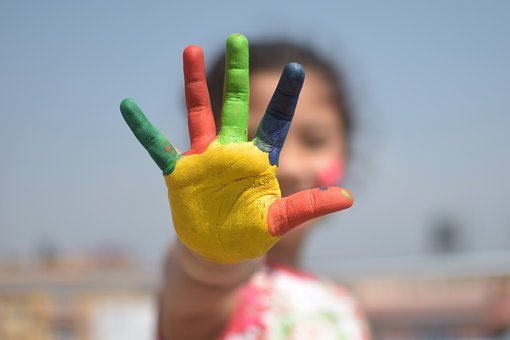Understanding Sensitive Periods in Montessori Child Development
 Dr. Maria Montessori identified specific phases in #early-childhood, termed "sensitive periods," during which children exhibit heightened receptivity to particular stimuli. Recognizing and supporting these periods can significantly enhance a child's #developmental journey.
Dr. Maria Montessori identified specific phases in #early-childhood, termed "sensitive periods," during which children exhibit heightened receptivity to particular stimuli. Recognizing and supporting these periods can significantly enhance a child's #developmental journey.
Key Sensitive Periods
- Order (Birth to 5 Years): Children seek consistency and predictability, aiding in understanding their environment.
- Language (Birth to 6 Years): A critical time for #language acquisition, where children rapidly absorb vocabulary and grammar.
- Movement (Birth to 4 Years): Development of both gross and fine motor skills through exploration and activity.
- Sensory Refinement (Birth to 5 Years): Heightened awareness and differentiation of #sensory inputs.
- Small Objects (1 to 4 Years): Fascination with tiny items, promoting attention to detail and fine motor development.
- Social Behavior (2.5 to 6 Years): Increased interest in social interactions, #empathy, and community dynamics.
Supporting Sensitive Periods
- Prepared Environment: Design spaces that are orderly and rich in sensory experiences to cater to the child's developmental needs.
- Language Exposure: Engage in conversations, read aloud, and introduce diverse vocabulary to #nurture #language-skills.
- Movement Opportunities: Provide activities that encourage both large and small muscle movements, such as climbing or threading beads.
- Sensory Activities: Offer materials that stimulate the senses, like textured fabrics or scented #playdough.
- Access to Small Objects: Ensure #safe exploration of small items to refine fine motor skills and concentration.
- Facilitate Social Interactions: Create opportunities for group play and collaborative tasks to develop social competencies.
Further Learning
For #educators and #parents interested in deepening their understanding of Montessori principles, Montessori4Teachers offers a course titled "Montessori Unveiled: Demystifying the Method for Parents". The article library at Montessori4Teachers includes titles such as “Development of Social and Emotional Skills in Montessori Education”.
Additionally, ChildCareEd provides a variety of #free resources to support child development such as “CDC Developmental Milestones Booklet (2 months - 5 years)” which outlines important milestones that children typically achieve between the ages of 2 months to 5 years.
Community Engagement
Engaging with a community of educators and parents can offer valuable insights. ChildCareEd's Pinterest page features a wealth of ideas and resources related to #early-childhood-education.
Conclusion
By recognizing and supporting these sensitive periods, caregivers can provide environments that align with children's natural developmental inclinations, fostering a lifelong love for learning.
- Inclusive Montessori: Supporting Diverse Learners in the Classroom
- Raising Peaceful Learners: The Montessori Advantage
- Intro to Montessori: Philosophy, Principles, and Practices
- Montessori Foundations
- Sensitive Periods in Montessori: Guiding Natural Learning
- Mastering Observation Techniques in the Montessori Classroom
- Understanding Montessori's Approach to Child Development
- Teach the Montessori Way: A Practical Guide
- Montessori in Context: Decoding Educational Theories
- Understanding Montessori’s Approach to Child Development
- Understanding Sensitive Periods in Montessori Child Development
- The Absorbent Mind in Montessori Education
- Developmentally Appropriate Practice in Montessori Education
- Sensitive Periods in Child Development
- The Montessori Classroom: Fostering Independence and a Love for Learning
- Harmony between school and home environments
- Understanding Sensitive Periods in Montessori Education
- Understanding the Sensitive Period for Order
- Understanding the Sensitive Period for Language
- Understanding the Sensitive Period for Movement
- Understanding Uninterrupted Work Periods
- Becoming a Montessori Assistant Teacher
- How Does Montessori Support Children During Potty Training?
- 🎨 Why Fewer Toys Can Mean More Imagination?
- 🌱 Can Montessori Help Heal Environmental Anxiety in Today’s Children?
- Sensitive Periods: A Window into a Child’s Superpower Moments
- Could the Montessori Approach Be Your Child-Care Superpower?
- ✨ The Magic of the Three-Period Lesson Explained